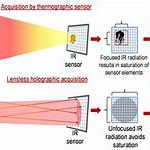Last Updated on 12 months by Francis
Electromagnetic field (EMF) testing is a process of measuring the levels of electromagnetic radiation emitted by electronic devices and equipment. EMF testing is carried out by professionals who are well-trained and equipped with the necessary tools to assess the levels of EMF radiation. In this article, we will discuss who does EMF testing and their importance in ensuring environmental safety and the health of the general public.
Contents
Understanding EMF
Electromagnetic fields (EMF) are invisible areas of energy that surround electronic devices such as smartphones, laptops, and other wireless devices. These fields are generated by the flow of electricity and can be either natural or man-made. Natural EMF is generated by the earth’s magnetic field, while man-made EMF is generated by electronic devices.
The Need for EMF Testing
EMF testing is necessary to determine the level of EMF exposure in a particular environment. The human body can be affected by prolonged exposure to high levels of EMF, which can cause health problems such as headaches, fatigue, and even cancer. EMF testing helps to identify the sources of EMF, the level of exposure, and the potential health risks associated with it.
EMF testing is typically performed by professionals who are trained in electromagnetic safety. These professionals have the necessary equipment and expertise to measure the levels of EMF in a particular environment. They can provide recommendations on how to reduce EMF exposure, which can include relocating electronic devices or using protective shielding.
EMF Testing Companies
Several companies specialize in EMF testing services. These companies use advanced equipment to measure EMF levels and provide comprehensive reports on the potential health risks associated with exposure. They also offer solutions to reduce EMF exposure in the environment.
Government Agencies
Government agencies such as the Environmental Protection Agency (EPA) and the Federal Communications Commission (FCC) are also involved in EMF testing. The FCC regulates the amount of EMF exposure from electronic devices, while the EPA provides guidelines on how to reduce exposure to EMF from power lines and other sources.
Independent Consultants
Independent consultants may also offer EMF testing services. These consultants may have expertise in areas such as building biology, electrical engineering, or environmental science. They can provide customized solutions to reduce EMF exposure in a particular environment.
FAQs for the topic: who does emf testing
What is EMF testing?
EMF stands for “electromagnetic fields,” which are invisible energy fields created by electrical and electronic devices. EMF testing is the process of measuring the strength and characteristics of those fields, as well as determining whether they meet regulatory limits.
Why is EMF testing important?
EMF testing is important because exposure to electromagnetic fields can potentially have negative health effects. By testing and measuring EMF levels, we can determine whether devices and infrastructure are operating within safe levels and take necessary steps to mitigate exposure.
Who should conduct EMF testing?
EMF testing should be conducted by qualified professionals who have the training and equipment necessary to carry out accurate measurements. These professionals may include certified electricians, electrical engineers, or environmental consultants with specialized EMF testing expertise.
What types of equipment are used for EMF testing?
EMF testing requires specialized equipment, including EMF meters and other measuring devices that can accurately measure electromagnetic fields. Some of the specific tools used for EMF testing may include Gauss meters, radiofrequency meters, and EMI (electromagnetic interference) detectors.
When is EMF testing typically conducted?
EMF testing may be conducted in a variety of settings, including residential, commercial, and industrial settings. It may also be performed in close proximity to high-voltage power lines, transformers, or other sources of electromagnetic fields. In general, EMF testing is most important when there is reason to suspect that high-level exposure could be a problem.







